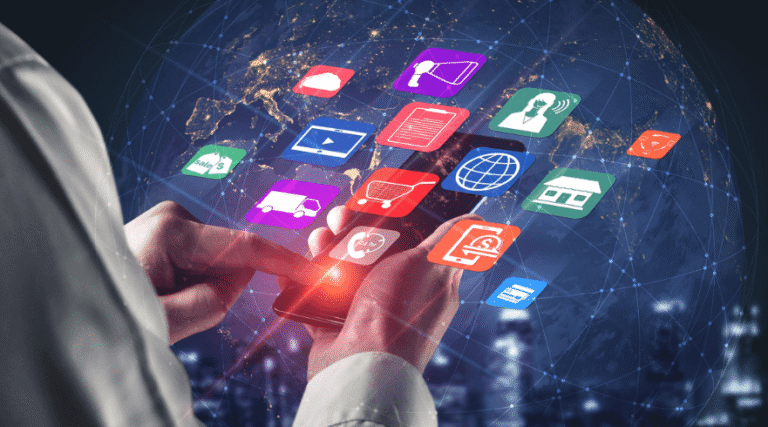Artificial Intelligence is transforming the workplace in profound ways. By automating routine tasks, it frees employees to engage in more meaningful work. This shift not only enhances collaboration but also promotes data-driven decision-making. As organizations adapt, new job roles are emerging that emphasize creativity and emotional intelligence. The implications of this evolution raise important questions about the future of work and the skills needed to thrive in an AI-centric environment. What changes lie ahead?
The Role of AI in Automating Routine Tasks
Artificial intelligence is revolutionizing the workforce by streamlining the automation of routine tasks across various industries. By implementing AI technologies, organizations can achieve significant task optimization, allowing employees to focus on higher-level, strategic initiatives.
This shift not only enhances workflow efficiency but also fosters a culture of innovation. Automated systems handle repetitive jobs, minimizing human error and accelerating processes, which ultimately leads to cost savings and increased productivity.
Moreover, AI-driven analytics provide insights that help refine operations continually. As a result, workers are liberated from mundane duties, empowering them to engage in more meaningful activities that contribute to their personal and professional growth.
Embracing AI in the workplace promises a future filled with opportunity and enhanced capabilities.
Read more: What Is a VPN and Why Should You Use One?
Enhancing Collaboration Through AI Tools
While organizations increasingly adopt AI technologies, the potential for enhancing collaboration among teams cannot be overlooked.
AI communication tools streamline interactions, breaking down barriers that often hinder teamwork. These technologies facilitate real-time feedback and seamless information sharing, thereby fostering a more connected work environment. Consequently, teams experience a boost in productivity, as AI-driven platforms enable members to collaborate effectively, regardless of geographical location.
By automating routine communication tasks, employees can focus on creative problem-solving and strategic planning. Furthermore, AI tools can analyze team dynamics and suggest improvements, further enhancing collaboration.
As organizations continue to embrace AI, the synergy between technology and human creativity promises to redefine how teams work together, ultimately leading to greater innovation and success.
AI-Driven Decision Making and Its Implications
The integration of AI tools not only enhances collaboration but also plays a pivotal role in decision-making processes within organizations. By harnessing advanced data analysis capabilities, businesses can make informed decisions based on real-time insights and predictive modeling.
This shift towards AI-driven decision-making allows for increased efficiency and accuracy, empowering teams to respond swiftly to market changes. However, ethical considerations arise as reliance on algorithms may lead to biases in data interpretation, potentially marginalizing certain groups.
Organizations must strike a balance between leveraging AI for improved outcomes and ensuring fairness and transparency in their processes. As AI continues to evolve, understanding these implications will be crucial for maintaining ethical standards in the workplace while fostering innovation and growth.
The Emergence of New Job Roles in an AI-Driven Workplace
As organizations increasingly adopt AI technologies, the landscape of job roles is undergoing significant transformation. Traditional positions are evolving as automation takes over repetitive tasks, leading to a demand for roles that prioritize human creativity and emotional intelligence.
New job titles such as AI Ethicist, Data Curator, and Automation Analyst are emerging, showcasing a shift toward specialized skill sets. This job transformation necessitates skill adaptation among the workforce, requiring individuals to embrace lifelong learning to thrive in an AI-driven environment.
Employees must cultivate technical competencies alongside soft skills to remain relevant. Ultimately, the rise of AI fosters a dynamic workplace where innovation flourishes, and workers are empowered to pursue roles that align with their passions and expertise.
Conclusion
In a rapidly evolving workplace, the juxtaposition of automation and human creativity becomes evident. While AI takes over routine tasks, freeing employees from the mundane, it simultaneously paves the way for new roles that demand emotional intelligence and innovative thinking. This duality highlights a transformative shift: organizations must now balance technological advancement with a renewed emphasis on human skills. As AI reshapes the professional landscape, continuous learning and adaptability emerge as essential traits for success in this new era of work.



